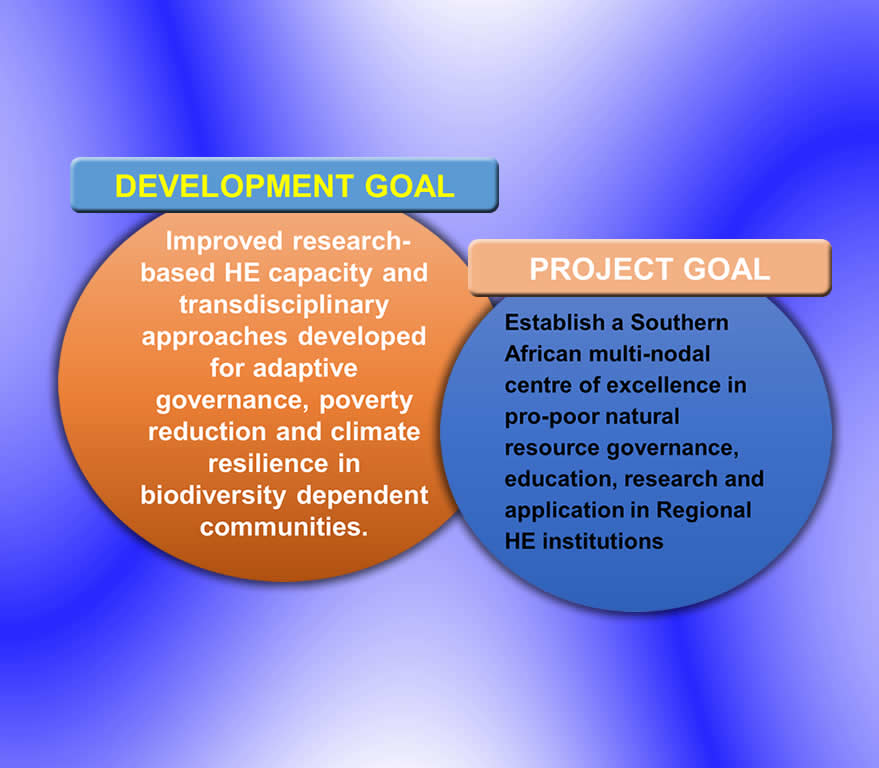Pedagogy and epistemology
Given Africa’s enormous challenges, we believe we need to develop a new brand of scholars who have the capacity to step out of their offices and to work with society to co-create knowledge to solve problems. Indeed, a 2007 study by the International Commission on Education for Sustainable Development Practice identified the need for new research and training with capacities to “navigate across the intellectual and institutional silos of specialized disciplines to develop integrated policy solutions that are scientifically, politically and contextually grounded”. Our goal, therefore, is to produce professionals with the analytical training, professional sense of responsibility, and disciplinary breadth and management skills to address the complex challenges of the 21st century. These scholar-practitioners need to solve real world problems by learning how to bridging scholarship and practice at the intersection of environment, development, economics and governance. All four HEI’s in this partnership are pioneering integrative research into praxis processes in their own countries.
At Stellenbosch the TsamaHub (Transdisciplinarity in Sustainability – Analysis, Modelling and Assessment) is seeking to “develop new ways of knowing and producing knowledge towards long-term sustainable solutions to Africa’s problems in complex social ecological systems”. Stellenbosch is specifically developing a transdisciplinary PhD program in partnership with African universities in Ghana, Nigeria, Ethiopia, Kenya and Tanzania aimed at using quantitative and qualitative research in transformative ways.
SAWC is moving in a similar direction with their “research into training system (RITS)” whereby SAWC plans to proactively engage in developing regional best practice, especially in CBNRM, as pilot sites for regional training. This matches a teaching philosophy of action-with-reflection that embraces a variety of teaching styles to address the different levels of education and backgrounds. This is often hands-on, practical and highly participative approach with as much as 70% of the programme based in the field and 30% in the classroom.
Thirdly, Brian Child, working closely with School of Public Leadership at Stellenbosch, has built an interdisciplinary research program in African conservation at the University of Florida, developing build African knowledge and research capacity through PhDs and Masters training. Through winning two highly competitive HE grants, he gained significant experiential learning in research-into-action-and-training processes, which led to this proposal. Through a USAID-funded HED “Transforming CBNRM Education in southern Africa” a partnership was developed with colleges (including SAWC) and universities in Tanzania, Malawi, Zambia, Zimbabwe, Botswana, Namibia and South Africa to build curricular capacity and train faculty. Secondly, following the global gap analysis mentioned above, MacArthur Foundation issued a call to develop interdisciplinary graduate training that bridges scholarship and practice. Led by Child, UF was one of two successful USA applicants in the first round (out of 100 applicants). Subsequently, UF has developed a new Masters in Sustainable Development Practice integrating health, environment, social and management sciences, with education being built around a field practicum requirement including a team-based research-into-practice summer initiative in partnership with University of Botswana, several communities, and the Southern African Regional Environmental Program (USAID $25m). The next obvious step was to translate this approach to Africa, which led to discussion between the partners and serendipitously to this NORHED application.
